Typically, people do not react well when they feel like they are being forced to like something. When we share our favorite movie with someone and they do not react the way we want them to, it can be easy to start doubting how great the movie actually is. This is because we are exposing a part of our personality and become vulnerable to judgement by them. In order to avoid this feeling, it is important to not over-hype the movie before showing it to others.
Being noticed and appreciated by others (especially those people close to us) is one of the strongest motivators for human beings. For example, when we show a friend a movie that we find absolutely awesome, we expose a part of our personality and become vulnerable to judgement by them.
As a result, we tend to focus a lot on getting the right/desired feedback from our friend. Consequently, we invariably find certain flaws in the movie that might bother us and make us doubt how good it truly is!
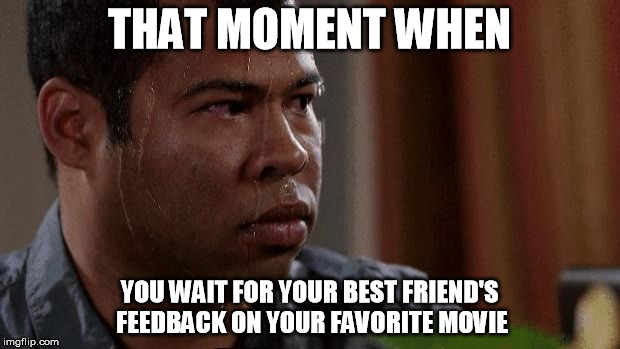
“Have You Watched That TV Show? It’s My Favorite.”
Not long ago, a friend of mine asked me if I had watched a particular TV show. I told him that I hadn’t, to which he replied that the show was his favorite, and that such an amazing show shouldn’t be missed by anyone, particularly one of his friends.
As it happened, the day when I finally watched the first episode of that show with a few other friends, he was there too. The show had been on for barely a few minutes when he started nitpicking and making comments like, “Yeah, there’s a small problem in that scene”, “This one scene is just stupid… ignore it”, “Hold on, here comes a hilarious scene” and so on.
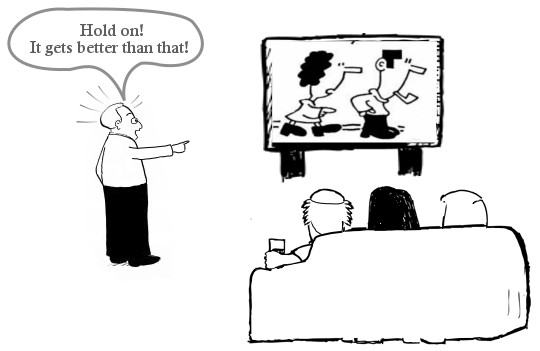
We were so annoyed by his comments that we eventually had to ask him to shut up and let us decide for ourselves which characters were boring/hilarious and whether we liked the show or not.
Although I ended up enjoying the show, I also identified an important aspect of human behavior. Whenever we strongly recommend something, be it a movie, TV show, song, short video, recipe etc. to someone and endorse it as “our favorite”, we have an uncontrollable urge to find out whether they like it or not.
Moreover, we actively try to get them to like that movie, show, song etc. To that end, we sometimes even sit with our friends while they’re watching the movie, and more often than not, we end up finding flaws and little mistakes in the movie, leading us to feel that it’s not that great after all!
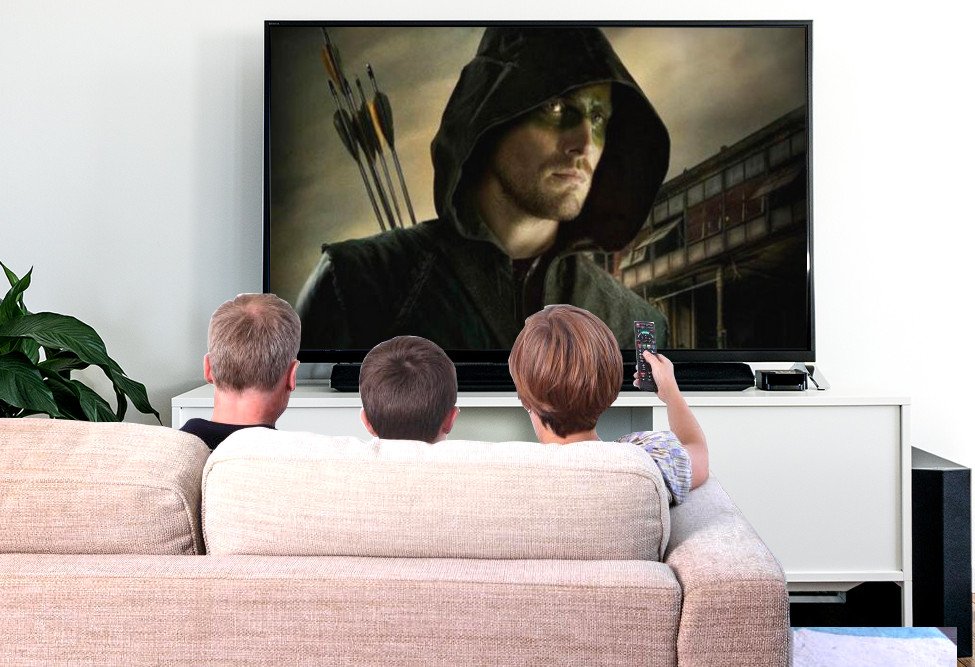
Why does that happen? Why does a great (and even our “favorite”) movie not seem as great when we show it to a friend?
Note: This is a purely subjective scenario, i.e., not everyone experiences this situation the same way that I, or someone else does. Even if they do, their reactions might differ significantly. Therefore, there’s no objective, universal answer to this question that applies to every situation. However, there are a few hypotheses that may explain some situations.
Also Read: Why Do We Like Horror Movies?
Belongingness – A Very Important Psychological Need
The feeling of belonging is a powerful and inexorable emotion that affects human nature. It’s the emotional requirement of an individual to be an accepted member of a community or group that they think is larger or greater than themselves. It leads to the formation of a relationship that is stronger than mere familiarity or acquaintance.

Many psychologists argue that the need to belong is one of the most fundamental psychological motivations that a person can have. If someone doesn’t possess a feeling of belongingness, they may have problems relating with their surroundings and communicating with others around them, which may be detrimental to them and others.

Maslow’s Hierarchy Of Needs
An American psychologist named Abraham Maslow proposed a theory in 1943 claiming that a person’s psychological well-being is based on the fulfillment of a series of needs. This theory came to be popularly known as Maslow’s hierarchy of needs.
These needs are commonly presented in the shape of a pyramid, wherein the bottom level is occupied by the most basic survival needs, i.e., physiological needs such as food, water and metabolic requirements, while the top layer consists of needs relating to self-transcendence and self-actualization.
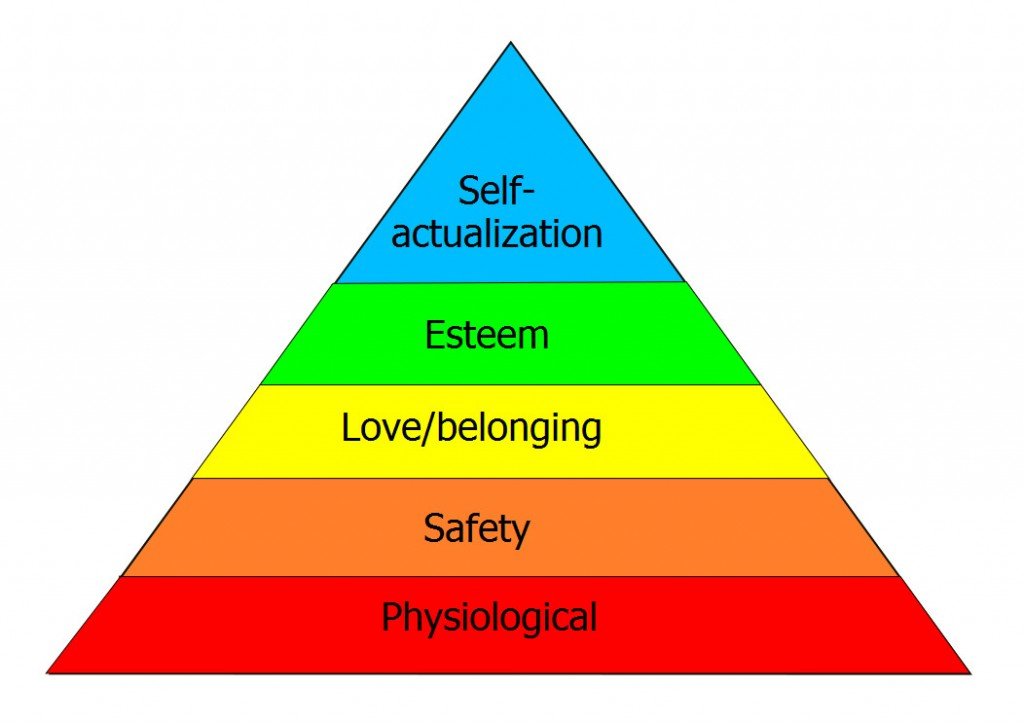
As you can see in the pyramid above, the need to belong sits on the third level. Maslow suggested that the need to belong was a major source of motivation for humans. However, some psychologists believe that the feeling of belongingness is a fundamental psychological motivator and that much of what we do is done in order to feel like we are a part of a larger group (Source).
What Happens When We Recommend Our Favorite Movie, Song Or TV Show To A Friend?
When we recommend something (e.g., a movie) to a friend or colleague, we internally desire for them like it, and subsequently, for them to think of us as being cool and cultured. We want them to like us more for introducing them to such a great movie, as we want to be recognized for having such great taste.
Many psychologists claim that the need to be seen, recognized and considered valuable drives people’s behavior to a great extent. Sharing your favorite movie with someone else is a subtle act of opening up; it makes you vulnerable to someone else’s judgment. Furthermore, this is not just any random person, but someone you are actually close to, such as a friend or colleague.
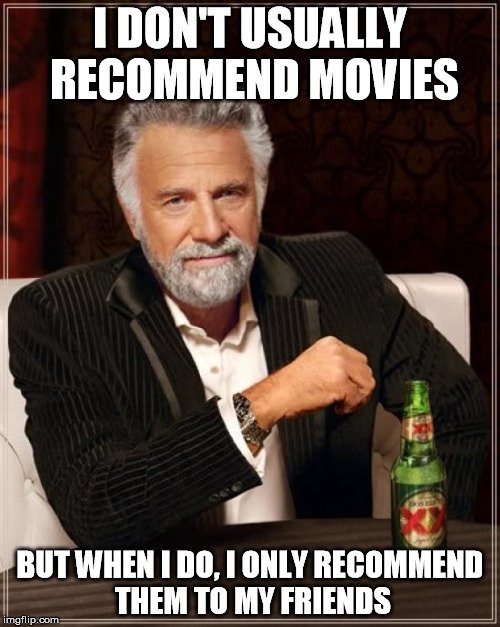
Since you make yourself vulnerable by sharing your favorite movie with a friend, you become overly focused on getting the desired feedback from them, which is why you start doubting the movie’s quality and questioning whether it actually is that great.
However, the desire to be appreciated by someone you care about may not be the only reason behind such a reaction. Sometimes, when you watch a show, it usually takes some time before you start noticing and enjoying the small idiosyncrasies of the cast.
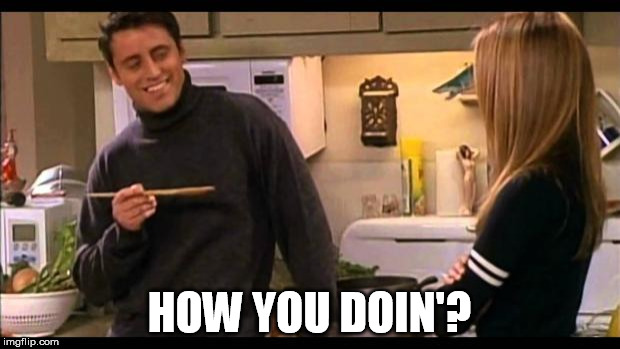
For instance, Joey’s (a character from Friends, a popular American sitcom) signature ‘How you doin’?’ might not seem as hilarious to a person who is watching the show for the first time. However, for someone who has been watching it for years, it may be one of the funniest elements of the entire show.
So, when someone starts watching the first episode of a comedy show, where they don’t know anything about the plot or characters, they may not share your enthusiasm for it. That doesn’t necessarily mean they don’t like it; it simply means they haven’t watched it as much as you to find those little details funny or amusing.
There may be other reasons too. When you show a TV show to a friend, it’s highly likely that you have watched it at least once. However, when you watch it for the second, fourth or tenth time, you start to notice small errors and flaws that you missed before, and you may begin thinking that the show is not that perfect after all.
It’s important to remember that no one really likes it when you share something with them in the hopes of getting a particular kind of reaction that pleases you, as this puts the person on the spot. Now, there is pressure involved, so they have to like that song because you hyped it so much by labeling it as your “favorite”.

In a nutshell, it’s completely normal to feel that your favorite show/movie/song is not as great when you show it your friends. In fact, many people feel that exact same way. Just remember to not over-hype things before showing them to others, and accept that even if your choices and preferences match in general, they may end up hating your “favorite” thing.
And that’s completely okay!
Also Read: Why Are Hit Songs So Enjoyable?
How well do you understand the article above!

References (click to expand)
- And How To Motivate Anyone, Anytime, Anywhere. wayne.edu
- The Need to Belong: Desire for Interpersonal Attachments as .... Harvard University
- Belongingness as a core personality trait: how social exclusion influences social functioning and personality expression. | Psychology - psychology.as.uky.edu
- Levett-Jones, T., Lathlean, J., Maguire, J., & McMillan, M. (2007, April). Belongingness: A critique of the concept and implications for nursing education. Nurse Education Today. Elsevier BV.
